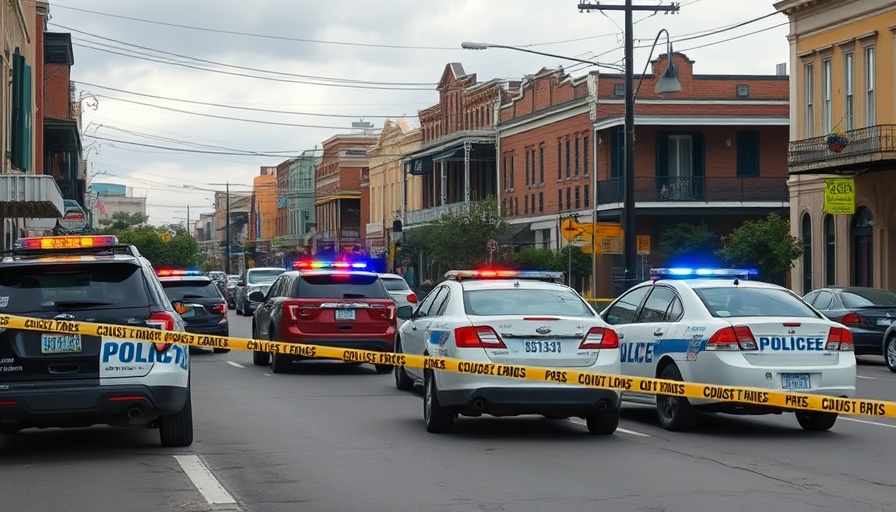
A Tragic Incident Unfolds in Uptown New Orleans
On June 19th, a tragic incident shook the community of Uptown New Orleans when police were called to the scene near a Walmart store after an alleged shoplifting event. Jhalon Cherry, a 32-year-old man, was captured on video taking items from the store and attempting to exit through a back emergency exit. The situation escalated quickly, leading to a confrontation with law enforcement.
Understanding the Context of Desperation
The police chief, Anne Kirk, revealed in a press conference that when officers approached Cherry, he exhibited alarming behavior and ultimately cut his own throat. This tragic act of self-harm raises pressing questions about the mental health crisis that many individuals face, particularly among marginalized groups and those experiencing economic distress.
Understanding the motivations behind such desperate actions can be complex. For many individuals committing petty theft, it may not be just about the stolen items; it often reflects deeper issues such as financial hardships, lack of access to mental health resources, and a growing sense of despair in today's socioeconomic climate. The incident has ignited conversations on how systemic issues contribute to personal crises. In Louisiana, where poverty rates are significantly higher than the national average, the vulnerability of individuals facing financial challenges deserves scrutiny.
The Ripple Effect of Crime and Mental Health
The aftermath of this tragic event brings focus to the broader implications that crime and mental health crises have on communities. Discussions surrounding crime typically center on justice and punishment, but we must also consider the socio-emotional factors leading individuals to commit such acts. Understanding this connection is vital in framing more supportive community responses instead of merely punitive measures.
Organizations throughout Louisiana are kicking off new initiatives aimed at addressing these intertwined issues. Efforts are growing to provide better mental health support and affordable services to those in need. In light of this tragedy, community leaders call for broader awareness of mental health conditions and the importance of support networks.
Confronting the Local Context
This incident also foregrounds the need for proactive approaches to public safety that integrate mental health resources into law enforcement protocols. As witnessed in this case, incidents of mental health crises frequently intersect with law enforcement encounters, leading to tragedies that may be prevented through better training and resources for police officers.
Engaging the community in dialogues about mental health is crucial. Across Louisiana, campaigns aimed at reducing stigma surrounding mental health disorders are vital. Personal stories shared by those who have faced similar challenges could help foster understanding among peers and lessen societal judgment.
Future Considerations and Community Resilience
As we reflect on this devastating situation, it's vital to emphasize a forward-thinking approach. This should involve community-driven initiatives focusing on not only enhancing mental health resources but also building support systems capable of addressing the root causes of such desperate actions. Support groups, access to healthcare, and economic resources could pave the way for recovery.
Policymakers and community leaders need to align their efforts more closely with mental health professionals to create comprehensive plans for addressing these ongoing challenges. By investing in preventive measures, we can create a stronger, healthier community capable of resilience in the face of adversity.
Conclusion: A Call to Action for Mental Health Awareness
This tragic suicide incident serves as a stark reminder of the intertwining struggles between crime and mental health. It beckons us all to advocate for better mental health resources and support systems within our communities. If you or someone you know is struggling, reaching out for help is a courageous first step. Together, let’s advocate for change and envision a future where mental health support is accessible to all. The community can combat stigma and ignorance surrounding mental health — the time for action is now.
 Add Row
Add Row  Add
Add 



Write A Comment